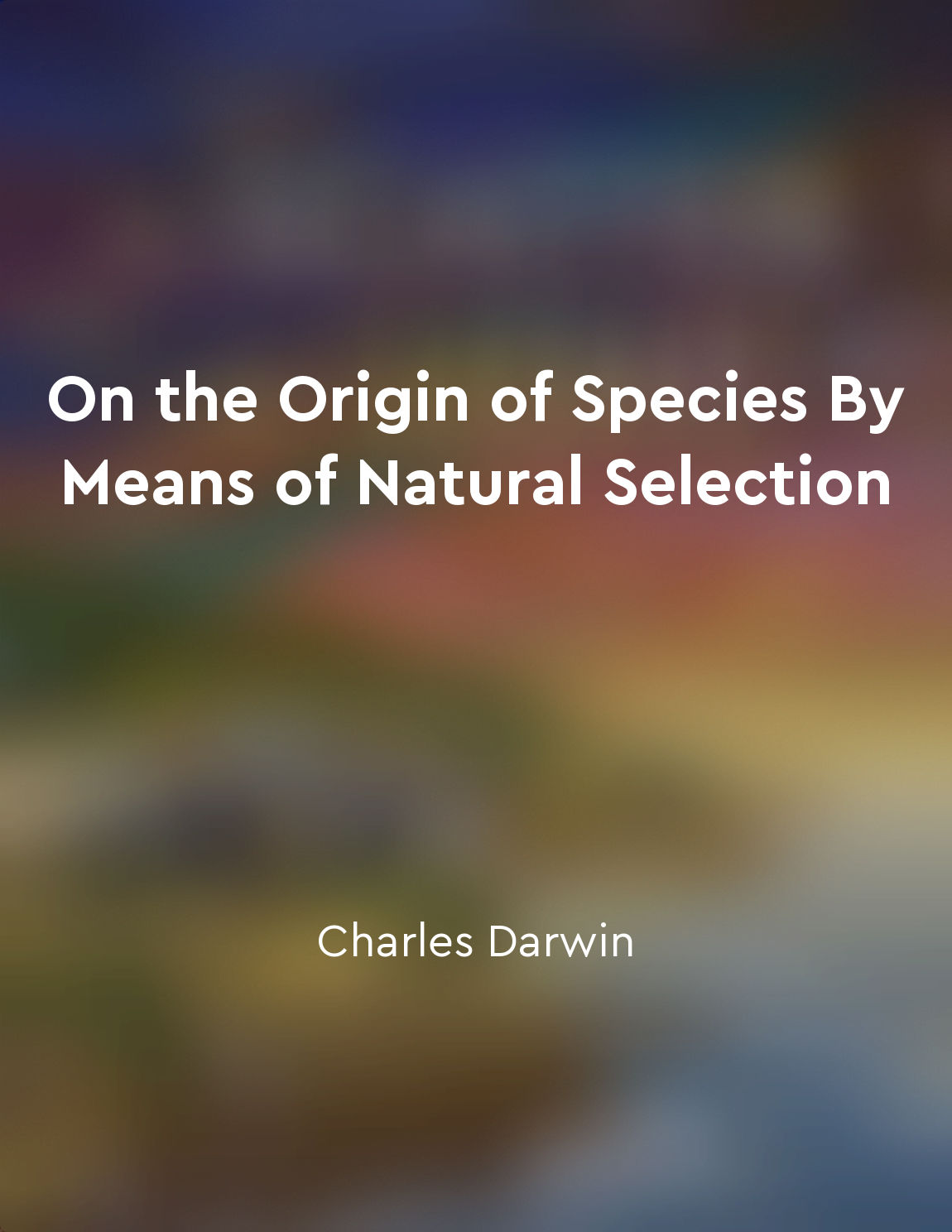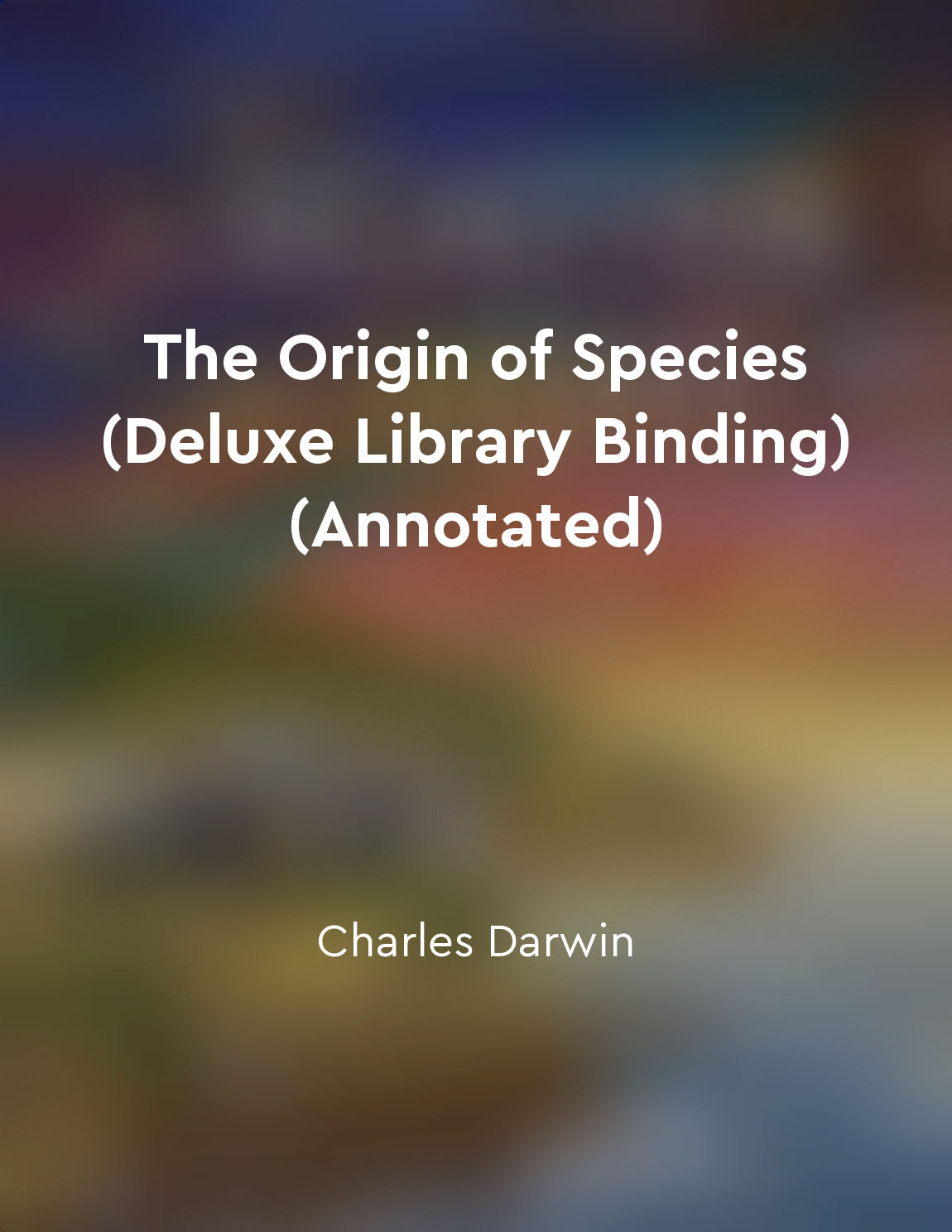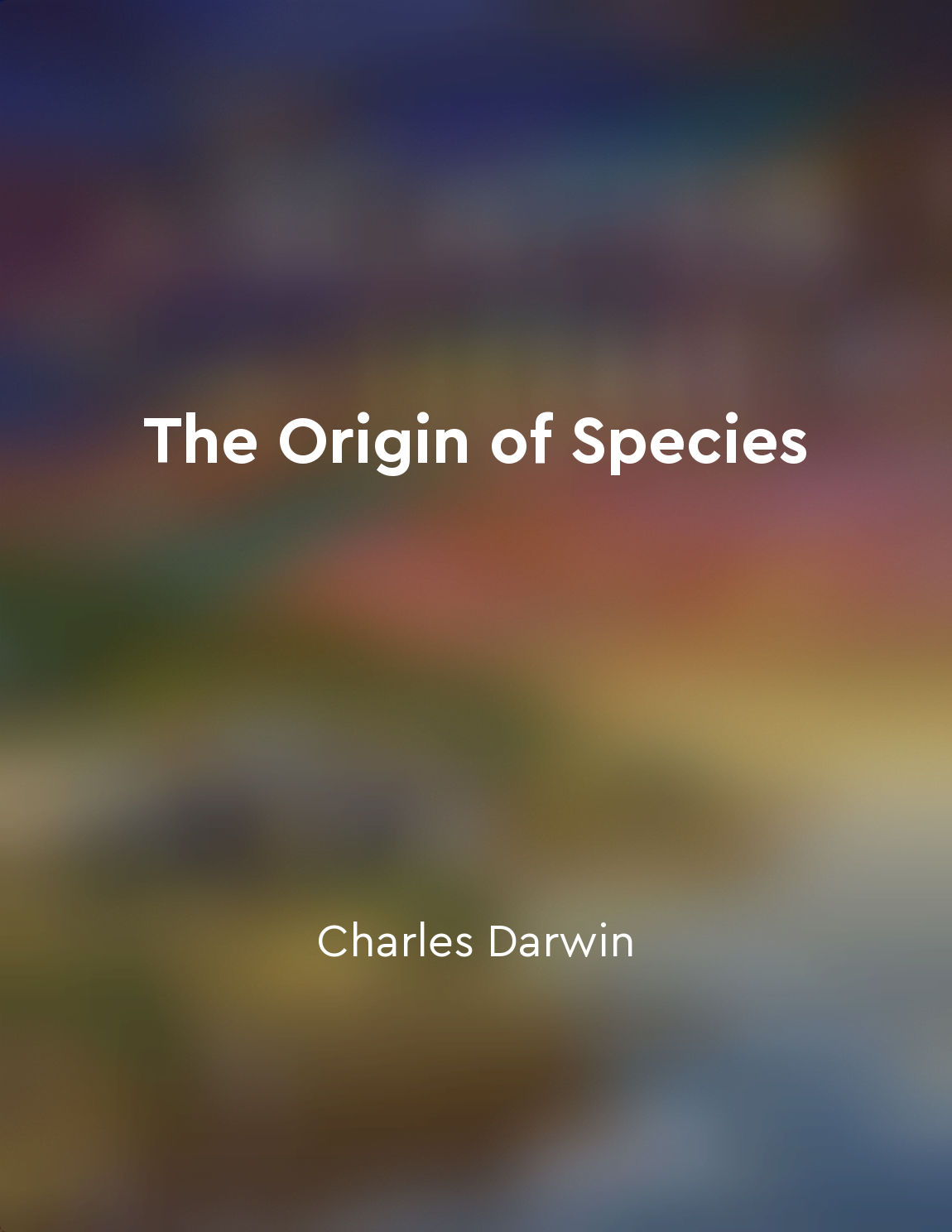Natural selection is a blind and indifferent process from "summary" of Darwin's Dangerous Idea by Daniel C. Dennett
Natural selection is a blind and indifferent process, devoid of any intention or foresight. It does not have a goal or purpose in mind; it simply operates based on the principles of variation, heredity, and differential reproductive success. This means that it does not actively seek to improve organisms or make them more adapted to their environment. Instead, natural selection acts as a filter, allowing some traits to persist while others are eliminated based on their fitness in a given environment. In the grand scheme of things, natural selection is impartial and does not favor one species over another. It operates based on the principle of survival of the fittest, where the fittest individuals are simply those that are best suited to their environment at a given time. This means that what is considered "fit" can change depending on the circumstances, and there is no ultimate standard of perfection or fitness that organisms strive towards. Furthermore, natural selection does not have a plan for the future or a blueprint for what organisms should look like. It is a purely reactive process that responds to changes in the environment and the interactions between organisms. This means that the outcomes of natural selection are contingent on a myriad of factors, including chance events, historical contingencies, and the interactions between different species. Despite its blind and indifferent nature, natural selection has the remarkable ability to produce complex and diverse forms of life. This is because it harnesses the power of variation and heredity to generate new traits and adaptations over time. By selecting for traits that confer a reproductive advantage, natural selection drives the evolution of organisms towards greater complexity and diversity.- Natural selection is a powerful and elegant explanation for the diversity of life on Earth. It is a simple yet profound idea that has revolutionized our understanding of the natural world. By recognizing the blind and indifferent nature of natural selection, we can appreciate the beauty and complexity of life as it has evolved through countless generations of trial and error.
Similar Posts
Hormones regulate various physiological processes
Hormones are chemical messengers produced by endocrine glands in our body. These hormones play a crucial role in regulating var...
Fossil record provides evidence of evolutionary change
The fossil record stands as the most tangible document of evolutionary history. Fossils provide us with a window into the past,...

Extinction of less adapted species
The process of natural selection inevitably leads to the extinction of less adapted species. As new and better-adapted species ...

Evidence from fossil record
The fossil record provides us with a valuable glimpse into the history of life on Earth. It allows us to see the progression of...

Culture is a product of collective human actions
Culture emerges as a spontaneous order from the interactions of countless individuals over time. It is not the result of any in...
Faith in God can enrich our understanding of the natural world
In the pursuit of scientific knowledge, we often encounter the natural world's mysteries that leave us in awe of its complexity...
Laws of nature
The laws of nature are the rules that govern the way the universe works. They are the principles that determine how things happ...

Environmental factors influence survival rates
In the struggle for existence, the environment plays a crucial role in determining the survival rates of individuals within a s...
Genes can influence behavior for their benefit
In the endless struggle for survival and reproduction, genes will go to great lengths to ensure their own perpetuation. One way...

Natural selection explains the complexity of living organisms
Natural selection is the process by which individuals that are best adapted to their environment are more likely to survive and...

